Giant slalom gold in PyeongChang “symbolises everything” for superstar Shiffrin
It has taken much of the past year for Mikaela Shiffrin, one of the most dominant forces in contemporary sport, to process her rollercoaster ride at the Olympic Winter Games PyeongChang 2018.
The Alpine skier, who at the age of 23 has already won more World Cup slalom titles than any other woman in history and who in December 2018 became the first female skier to win all six World Cup disciplines, experienced familiar highs in PyeongChang but also rare and traumatising lows. One year to the day after claiming giant slalom gold, and 364 days after shockingly finishing fourth in the slalom, she is at last able to embrace both results.
To explain, the USA superstar went to PyeongChang 2018 as one of the faces of the Games. She was the defending Olympic slalom champion, the three-time slalom world champion and had won five of the season’s seven World Cup slalom races to that point. Many leading pundits had her chalked down to win a medal in each of the five disciplines, with some predicting a golden sweep.
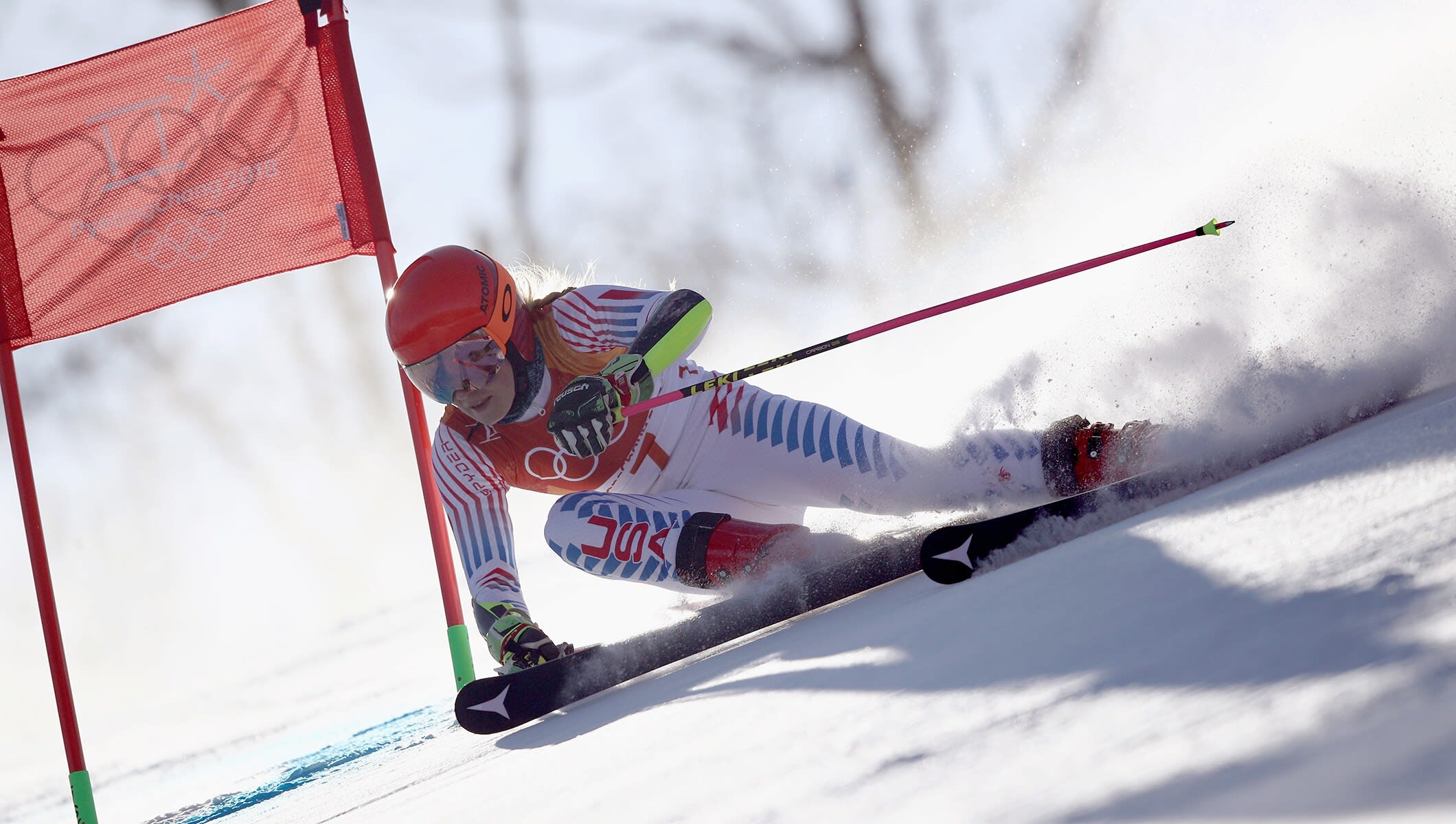
First up was giant slalom. The bare bones of what happened are that, after four days of waiting for high winds to subside and allow a fair competition, Shiffrin skied a beautifully controlled first run before bursting out in the second and racing right on the edge to claim her first major championship giant slalom gold. But the story behind the triumph is far more nuanced.
“In Sochi [2014 Winter Games] I was fifth in the GS [giant slalom] and I was only two-tenths [of a second] off the podium, which was really unexpected because at that point I definitely didn’t consider I was the best GS skier in the world,” Shiffrin said. “I do remember thinking [in Sochi], ‘It’s good I didn’t get a medal in GS’ because my level at that point wasn’t good enough to deserve an Olympic medal.
“But I did set the goal to raise my GS level so that at the next Olympics I would be able to stand at the start and know my skiing was worthy of a medal.”
While she undoubtedly achieved that, Shiffrin did have to deal with a major bump on the morning of her first 2018 Olympic race.
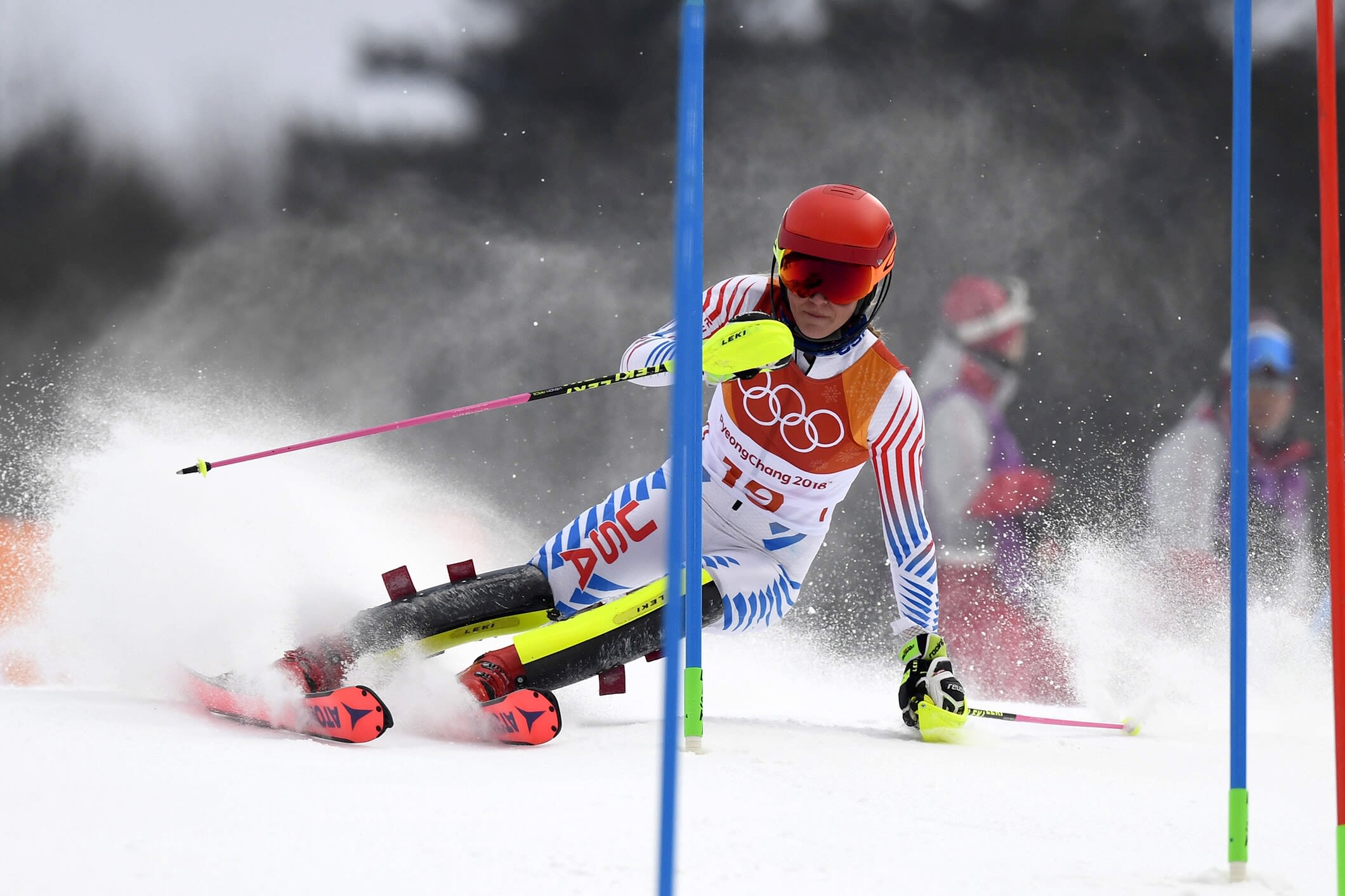
“I fell on one of my warm-up runs, just a technical error,” she said. “I felt a little bit shaken up because of that and my confidence was a little rattled. Before, I was thinking, ‘My turns feel so strong’ and there was no doubt in my brain, and then that happened and I was like, ‘Oh gosh’.”
Like the champion she so clearly is, Shiffrin turned it around and used the fall to her advantage, reminding herself to keep her “basics strong” and not to “get ahead of” herself. With a thrillingly rapid second run in the bag, Shiffrin had the unfamiliar sensation of watching the final competitor – Italy’s first-run leader Manuela Moelgg – come down knowing she could be beaten.
“I knew at the very worst I had a silver medal, so I had that emotion of, ‘My gosh, it’s the Olympics and I have got a medal’ – because I definitely had a fear that I was going to walk away from PyeongChang with no medals at all,” the champion explained. “So I was like, ‘OK, you can be relieved now’. Then it was waiting to see what colour.”
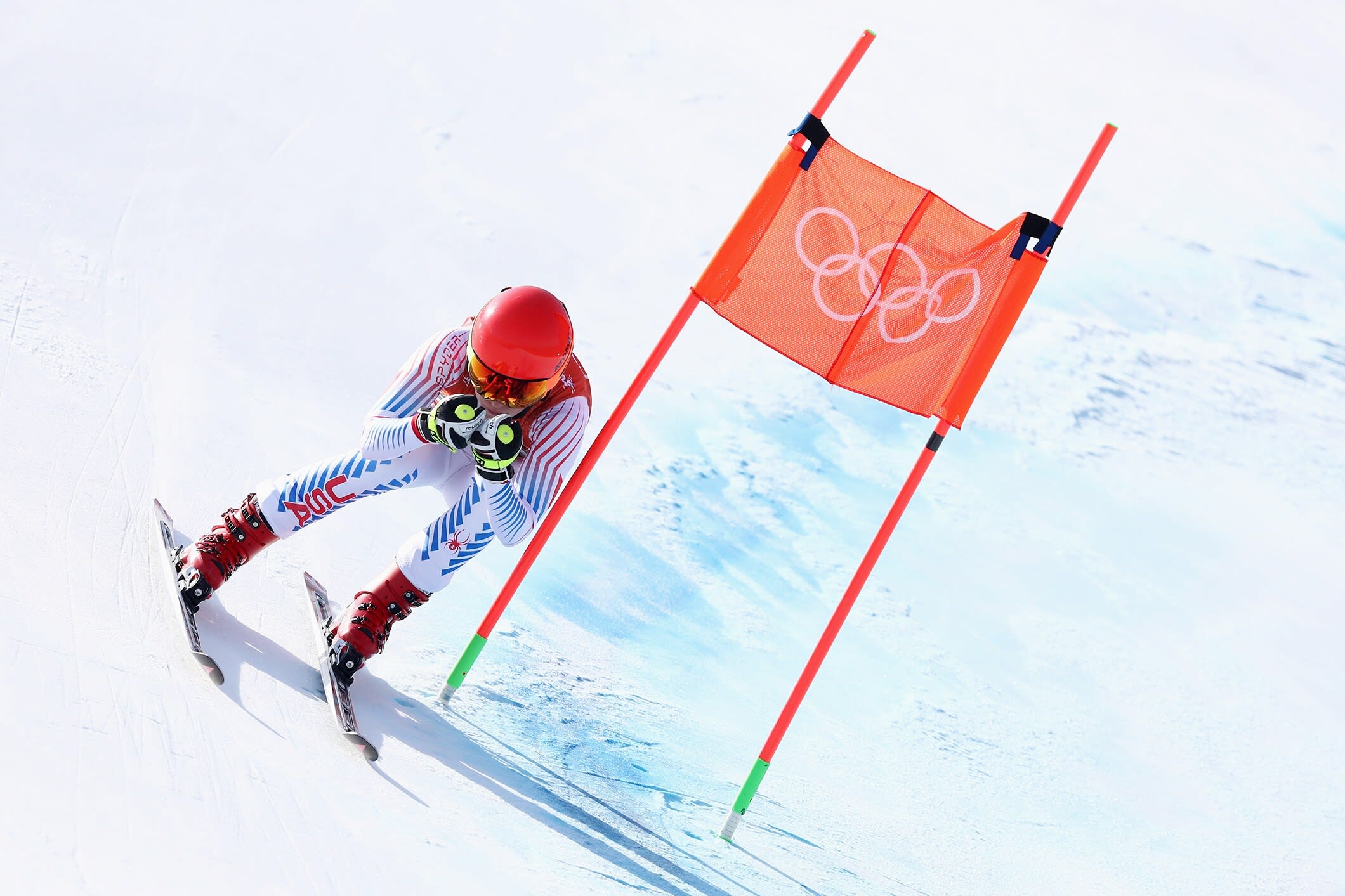
It was to be gold, with Moelgg fading away to finish eighth. But it was what came next for Shiffrin that she has agonised over endlessly. The Colorado resident had about 18 hours from the end of the giant slalom to the start of the next day’s slalom. Not much time for any of the skiers to rest, recover and re-emerge ready to go again, but for a much in-demand gold medal-winning superstar, it was almost no time at all.
Shiffrin came out the next day, had “no feel” in her first slalom run, was unable to find a miracle in her second and finished fourth, 0.40 seconds behind gold medallist Frida Hansdotter (SWE).
“The slalom was heart-breaking,” Shiffrin said. “Obviously my skiing itself wasn’t up to the standard that it needed to be to win a medal.
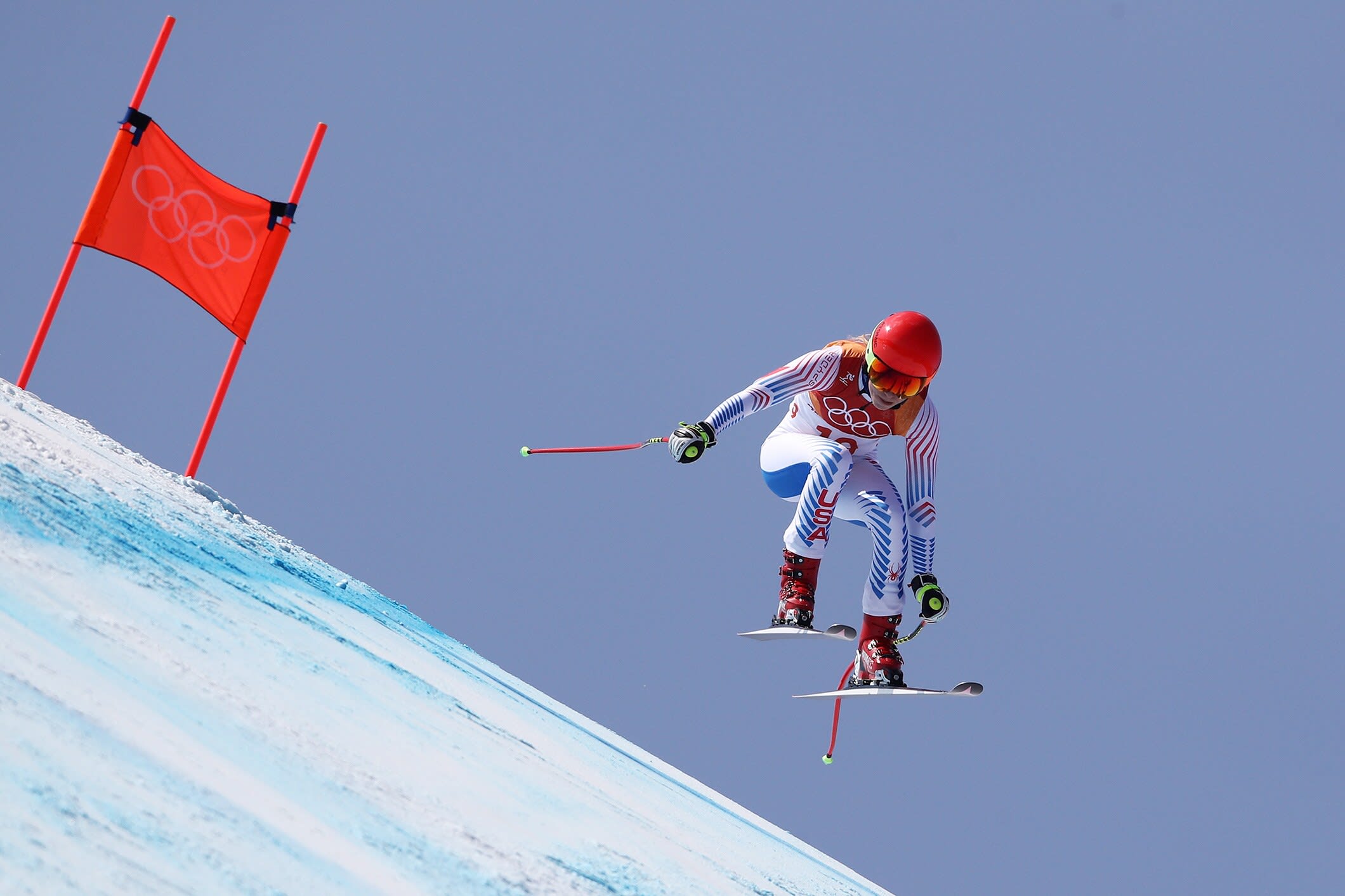
“In that moment and the weeks after, people would mention the slalom and my hair would stand on end, and anger and disappointment and sadness would all creep in.”
Looking back now, Shiffrin can pinpoint when and why she lost that slalom feel and, now, she is OK with it.
“I kept re-thinking what I could have done better, but really what I needed to do was not win the GS in order to have a shot at the slalom,” Shiffrin said. “Because the energy that it took to go through all the emotions, the media, the award ceremony – everything – was what took that final ounce of energy from the slalom.
“I think that made the difference, and I am now finally able to say I am OK with that. Now I finally believe it, I wouldn’t change that GS for the world, it meant more to me than winning gold in the slalom ever could have.
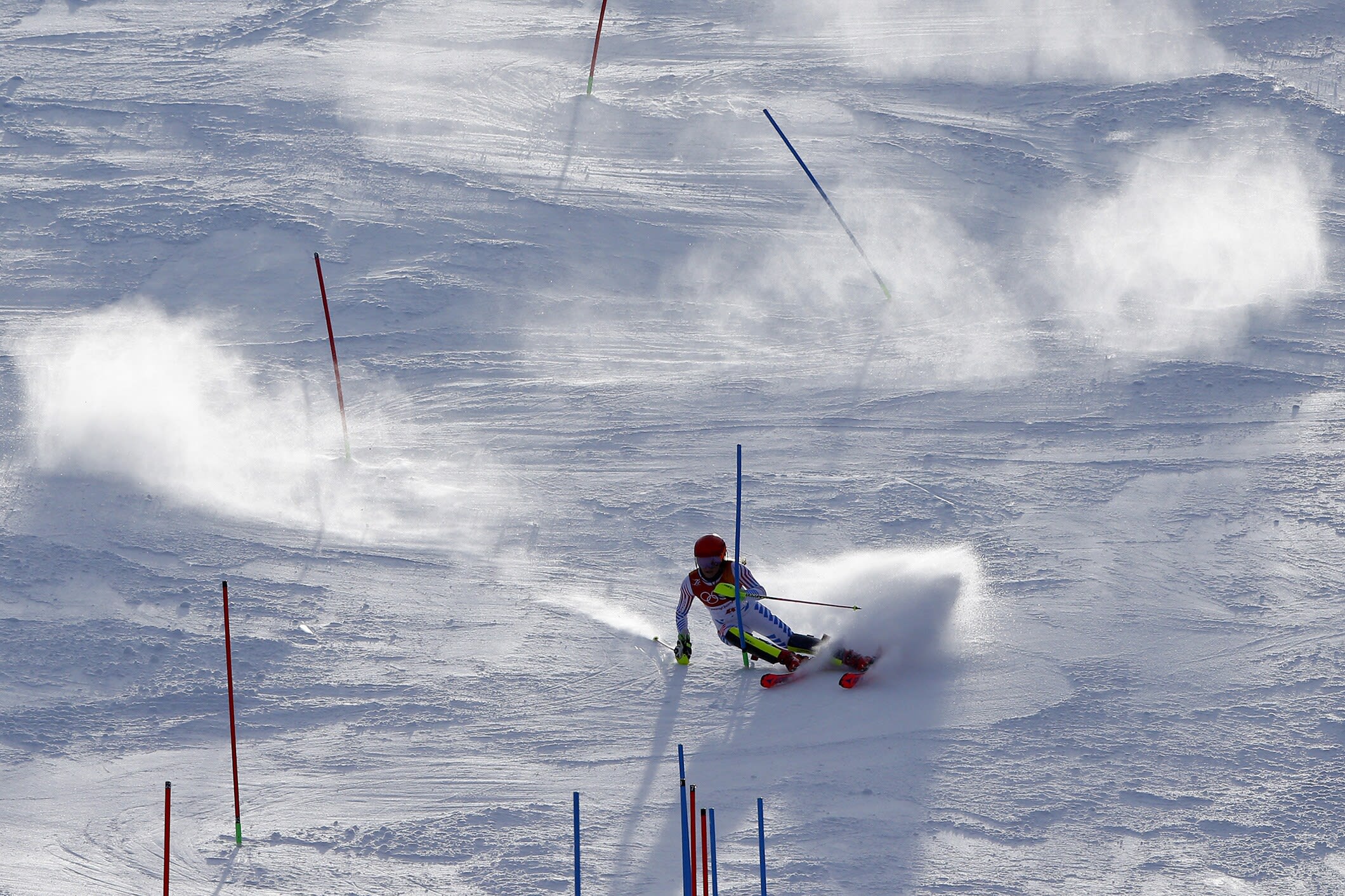
“It’s something I am really proud of and I am also really proud of having done everything after it, done the media, gone to the award ceremony and just enjoyed it.”
With the schedule compressed, Shiffrin subsequently pulled out of both the downhill and the super-G but lined up for the combined. Sixth quickest on the downhill section, Shiffrin powered through the field in the slalom and claimed silver.
The medal made her the most decorated Olympic USA Alpine skier ever – not bad for a 23-year-old. But no matter how many more Olympic medals may come her way, Shiffrin is adamant that first day in PyeongChang will never be beaten.
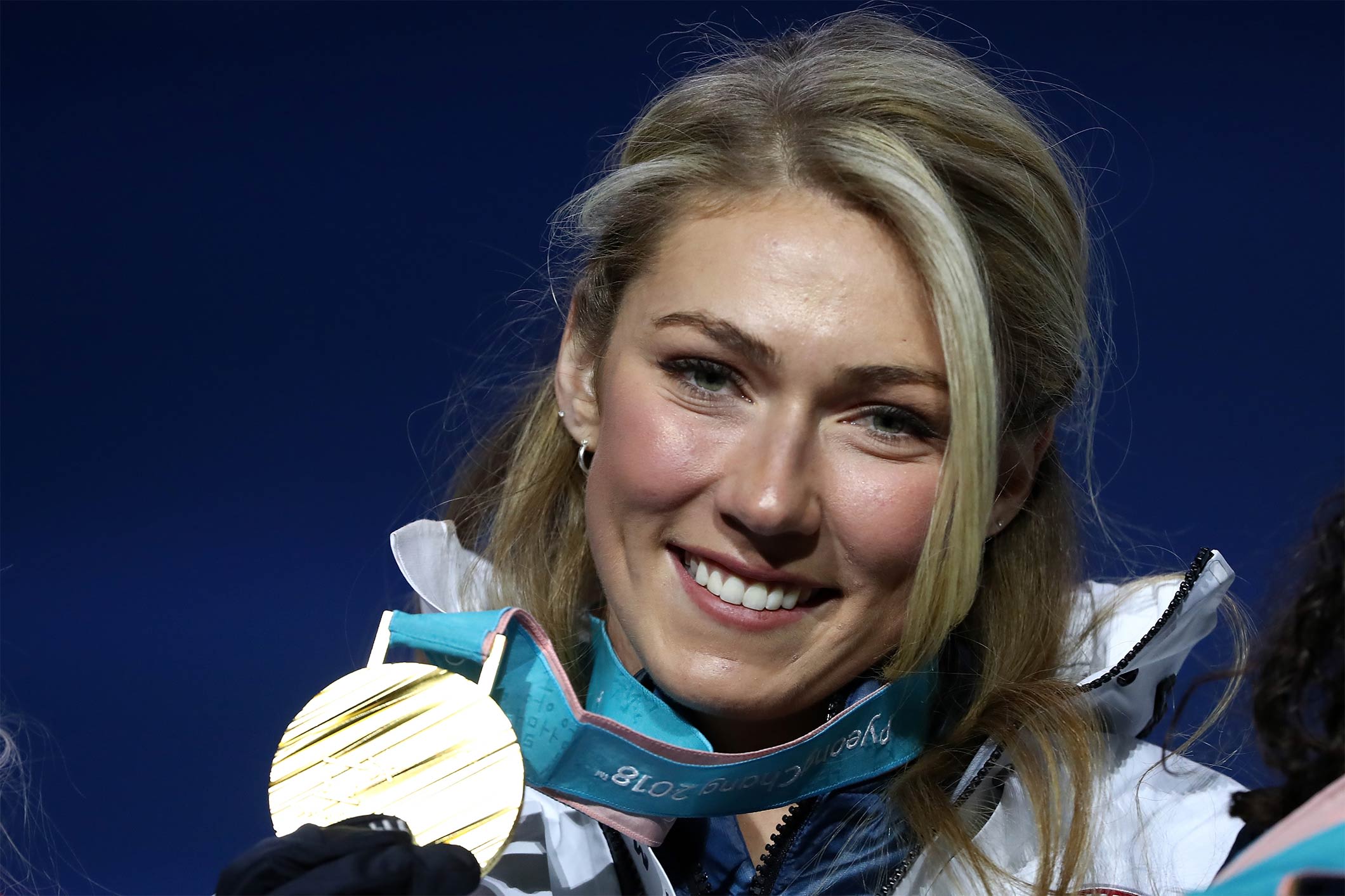
“Winning the gold in GS in PyeongChang is probably always going to be one of my favourite moments of my career, just because everything that it symbolises is everything that I hoped for,” she said. “That was a really, really big milestone in my career.”